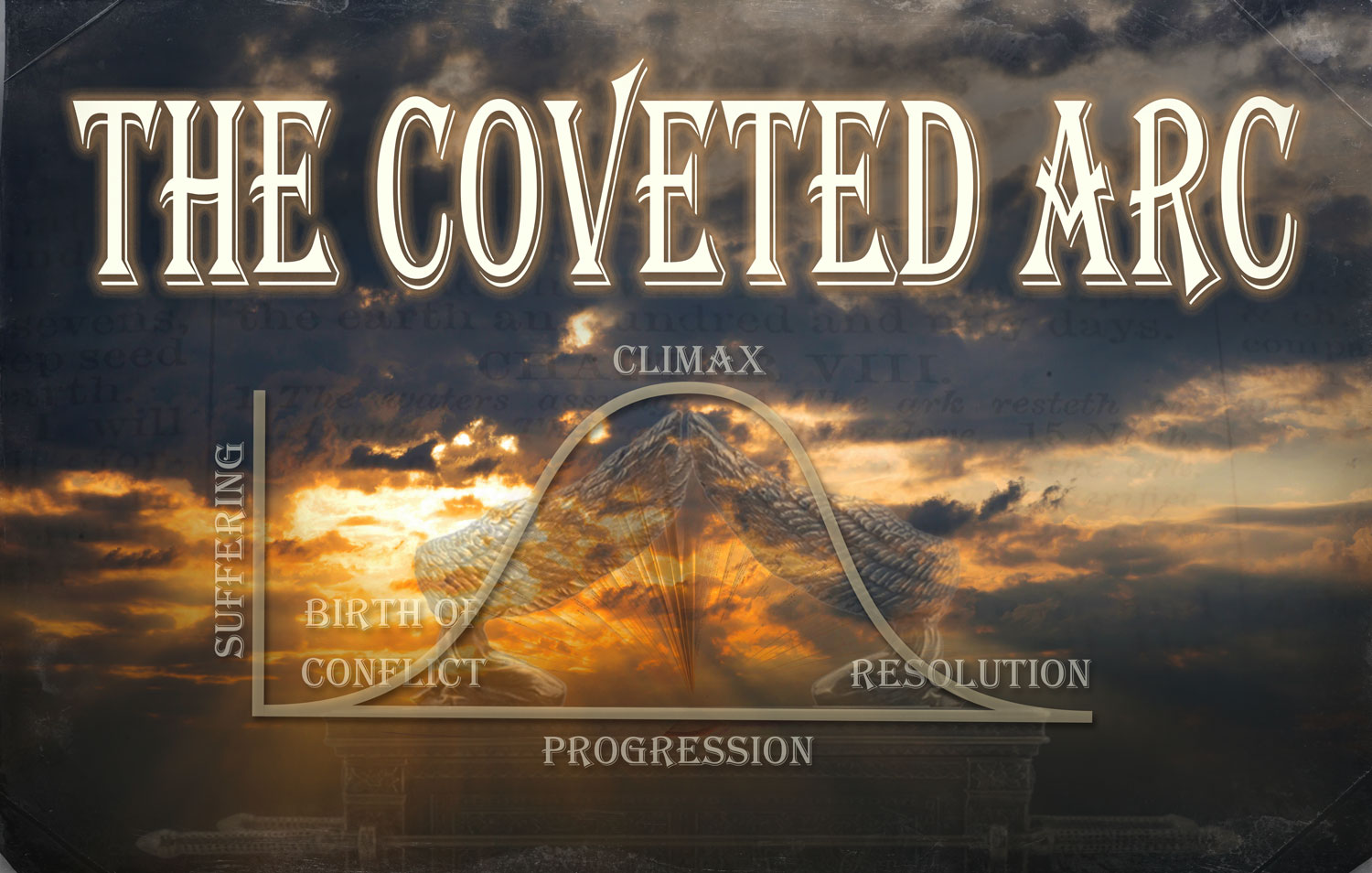Who doesn’t hope for a fairytale happily ever after in life?
For some, it’s the dream of a soul mate.
Others imagine a warm retirement or a house filled with family.
For many, the ideal ending is an enlightened state of mind.
However we picture it, most of us are drawn toward a story that means something – a journey with a sense of purpose and a satisfying conclusion.
In storytelling terms, this is known as as satisfying narrative arc.
What’s the arc of your life look like?
The Shapes of Story
There are many types of arcs:
– The upward-bound Rags to Riches
– The rise and fall of Icarus
– The classic Man in a Hole, where someone falls before rising again
Hollywood may recycle these patterns, but they exist because they reflect something deeply human: our desire for progress, transformation, and resolution.
But beyond the shape, every arc shares one essential trait – it must contain both rise and fall.
Without ups and downs, a story becomes just a list of events.
It doesn’t move us. It doesn’t matter.
A Life Without Arc?
Ask yourself: would you choose a flat line – a smooth, uneventful life – or a story worth telling?
Chances are, you’d choose the story.
We want moments to remember, milestones to share, meaning to hold onto.
We want to feel like our lives matter, and we want that meaning to build toward something better.
Desire pulls us forward.
It gives us hope, something to aim for.
It makes sense of the struggle.
But what if we pause to examine that idea?
Does life actually arc?
Or is the narrative arc something the mind imposes – a lens of measurement and interpretation applied to a stream of otherwise neutral events?
The Mind Needs Meaning
This kind of thinking unsettles the storytelling mind.
Because stories require struggle.
We say we want happiness, but we measure it against our low points.
We resist the fall and cling to the next rise.
Nowhere is this more evident than in spiritual circles.
For those of us on ‘the’ path – we dream of a final, permanent awakening – the ultimate happy ending.
We measure each moment against that ideal.
If it doesn’t match, we suffer.
We pray harder, meditate longer, strive for deeper understanding.
But the irony is sharp:
Many spiritual traditions point to a life without clinging to story – a state of presence beyond narrative.
And yet, even this becomes part of the story:
“My journey. My path. My transformation.” … and it’s all being done to get somewhere.
We narrate even our silence.
Presence Doesn’t Make a Good Story
The truth is, genuine presence – the kind that spiritual teachers speak of – is not very interesting.
There’s no climax, no twist, no big payoff.
It’s quiet.
Still.
Boring, even.
Which may explain why so few truly embrace it.
We don’t want to just be – we want to become.
We want our suffering to mean something.
We want it to build to a resolution.
But the resolution the mind craves is also its undoing.
The end of the story is the end of the mind process.
And so the mind resists.
It would rather prolong the drama than face the closing scene.
We Suffer Willingly
And so we keep turning the page.
We build more conflict, create more tension, complicate the plot – all in the name of story.
We suffer, but willingly.
Because suffering makes the ending matter.
The rise must follow the fall.
It has to.
Or so we tell ourselves.
Can There Be a Story Without Suffering?
Maybe.
But if there is, it likely wouldn’t feel like a story at all – just a series of unmeasured moments.
No arc.
No climax.
No hero’s journey.
If you chose that path, your life might seem incredibly dull compared to the fairy tale you once thought you were in.
And that’s the point.
A flat story doesn’t sell tickets.
But it might bring peace.
Reflection One
A story free of hardship isn’t the same as a feel-good story.
Feel-good stories still need a second act of pain to define the joy at the end.
But a story without hardship? That’s just… life.
Unadorned. Unfiltered.
Not particularly cinematic.
And yet, this is exactly the kind of story many seekers of truth are chasing – even as they dramatize their journey toward “no story.”
Letting go of the narrative is the ultimate ending.
What could be harder than that?
Reflection Two
If you must have a story, try this:
Live like the unsung hero.
No hymns. No sacred texts. No acclaim.
Just a quiet life, gently lived, and quietly gone.
Simple.
Complete.
Overlooked.
Enlightened.



